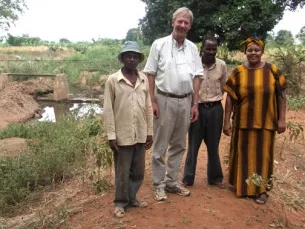Intensive Cultivation without State and Population Pressure
Research project in Human Ecology
Project's title: Intensive Cultivation without State and Population Pressure: A Comparative Study of Non-capitalist Agrarian Systems in a Political Ecological Perspective (The Bank of Sweden Tercentenary Foundation)
Project's duration: 2008-2010
Contact person: Thomas Håkansson (natrix [at] mindspring [dot] com; +1-859 269 7704)
Overview
The relationship between society and agricultural resources has been of central concern to the human sciences since the 18th century when Malthus formulated his famous thesis on how human populations tend to overuse available land. However, the current, dominant frames of analysis of agricultural change are in crisis.
For the past three decades, an accumulation of historical, ethnographic and archaeological research on non-industrial agriculture has cast doubt on the explanatory power of the principal theories of agricultural change, which use population pressure, political centralization, or both, as the independent variables. This build-up of information inconsistent with conventional theoretical expectations signals that a paradigm shift is imminent.
The main purpose of this comparative project is to identify the driving forces, other than population pressure and political centralization, which are causally linked to agricultural intensification in different parts of the world and during different time periods.
The primary hypothesis derives from my research on traditional irrigation systems in East Africa, which developed without the presence of states and population pressure. Intensive cultivation is likely to have emerged and persisted as a result of regional and world-systems processes rather than from population pressure. This project will explore different models for how decentralized social and economic institutions are related to cultivation and exchange.


